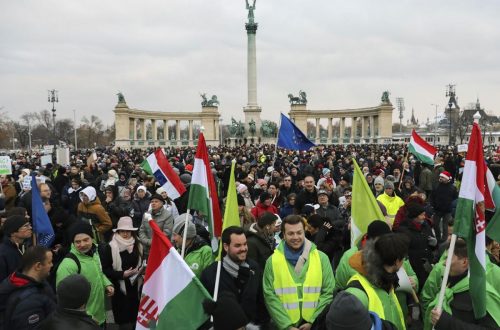Did anyone else do a double-take when Rupert Murdoch told the Parliamentary committee Tuesday that Singapore is the most open society in the world?
Murdoch said that Singapore’s model of paying politicians millions of dollars had created a cleaner and more transparent government and one that Britain should emulate.
“I think there is an answer to it, and we ought to look at them as open and clear as a society in the world, which is Singapore — where every minister gets at least a million dollars a year and the prime minister a lot more and there is no temptation and it is as clean a society as you find anywhere.”
Now Singapore may be clean, orderly, largely corruption-free and other good things– but open? And does Murdoch really believe that paying government ministers huge salaries is the key to openness?
From Freedom House’s 2010 report on Singapore (which it rates as only “partly free”):
The authorities continued to restrict freedoms of speech and assembly in 2009. In April, Singapore’s legislature passed a measure that would require police permission for public assemblies of all sizes, removing a previous threshold of five or more people. In October, the Far Eastern Economic Review lost an appeal in a defamation case brought by the prime minister and his father; the magazine agreed to settle the case in November and was shuttered by its owners in December.
…..
Singapore is not an electoral democracy. The country is governed through a parliamentary system, and elections are free from irregularities and vote rigging, but the ruling PAP dominates the political process. The prime minister retains control over the Elections Department, and the country lacks a structurally independent election authority. Opposition campaigns are hamstrung by a ban on political films and television programs, the threat of libel suits, strict regulations on political associations, and the PAP’s influence on the media and the courts.
…..
Singapore has traditionally been lauded for its relative lack of corruption. There is no special legislation facilitating access to information, however, and management of state funds came under question for the first time in 2007. Critics lamented the state’s secret investment of national reserves, and investigations into the state investment arm, Temasek Holdings, were launched by Indonesian and Thai watchdog agencies. Singapore was ranked 3 out of 180 countries surveyed in Transparency International’s 2009 Corruption Perceptions Index.Singapore’s media market remains tightly constrained. All domestic newspapers, radio stations, and television channels are owned by government-linked companies. Although editorials and news coverage generally support state policies, newspapers occasionally publish critical pieces. Self-censorship is common among journalists. The Sedition Act, in effect since the colonial period, outlaws seditious speech, the distribution of seditious materials, and acts with “seditious tendency.” Media including videos, music, and books are sometimes censored, typically for sex, violence, or drug references.
Foreign broadcasters and periodicals can be restricted for engaging in domestic politics, and regulations in place since 2006 require all foreign publications to appoint legal representatives and provide significant financial deposits. The leadership’s practice of using defamation suits and license revocations to silence critical media is often applied to foreign-owned outlets. In October 2009, the Far Eastern Economic Review lost its appeal of an earlier judgment finding that it had defamed Prime Minister Lee Hsien Loong and his father, Lee Kuan Yew, by publishing a 2006 interview with an opposition figure. The magazine agreed to settle the case for about US$300,000 in November, and it was discontinued as of December 2009 by its owner, the U.S.-based News Corporation, which cited falling revenues and readership. The Lees have never lost a defamation case in Singapore.
The internet is widely accessible, but the authorities monitor online material and block some content through directives to licensed service providers. In 2008, lawyer and blogger Gopalan Nair was sentenced to three months in jail for insulting judges on his blog and in an e-mail message.
…..
The Societies Act restricts freedom of association by requiring most organizations of more than 10 people to register with the government, and only registered parties and associations may engage in organized political activity. Political speeches are tightly regulated, and public assemblies must be approved by police. Legislation passed in April 2009 eliminated a previous threshold requiring permits for public assemblies of five or more people, meaning political events involving just one person could require official approval. Permits are not needed for private, indoor gatherings as long as the topic of discussion is not race or religion.
…..
Citizens enjoy freedom of movement, although the government occasionally enforces its policy of ethnic balance in public housing, in which most Singaporeans live, and opposition politicians have been denied the right to travel.Women enjoy the same legal rights as men in most areas, and many are well-educated professionals, though relatively few women hold top positions in government and the private sector. Of the current Parliament’s 84 elected seats, 17 are held by women, all of whom belong to the PAP. In 2007, Parliament voted to maintain provisions of the penal code that make acts of “gross indecency” between men punishable by up to two years in prison.


